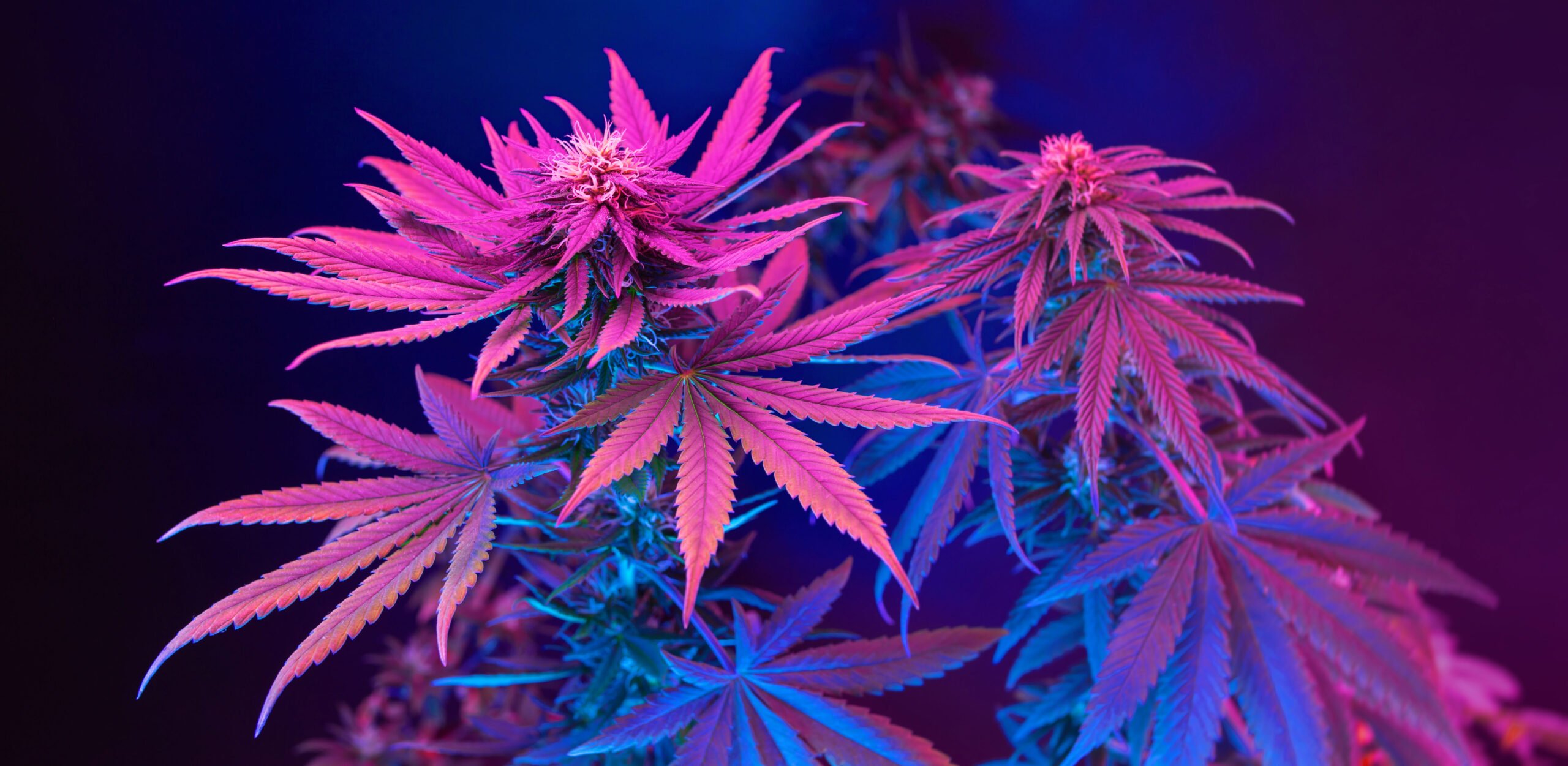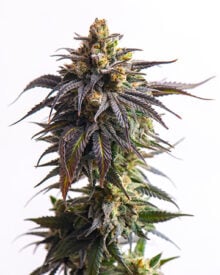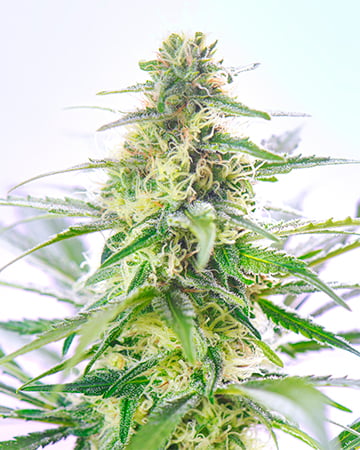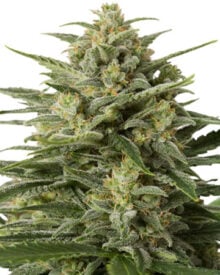
Legal States
Where Growing Cannabis Is Legal
Cannabis laws in the U.S. are constantly evolving, and knowing where home cultivation is legal can be confusing. This page serves as a guide to the states where growing marijuana is allowed, whether for recreational or medical use.
Below, you’ll find a list of states where home cultivation is permitted, along with links to detailed state-specific pages outlining plant limits, residency requirements, and other key regulations. Keep in mind that while some states allow personal cultivation, others have restrictions based on medical use or local ordinances.
Laws can change, so always check official state resources before starting your grow.
There Are 3 Types of Cannabis Legalization in The U.S.
Not all “legal” states are the same when it comes to growing cannabis. Some give you full freedom to cultivate at home, while others have strict rules—if they allow it at all. There are currently three types of marijuana legalization laws in the U.S., and it varies state-by-state.
Recreational Legalization
If a state has legalized recreational cannabis, that usually means adults (21+) can grow their own plants at home. But there are still limits—like how many plants you can have and where you can grow them. Some states even let cities and counties ban home cultivation, so always check local laws before you start growing.
Medical Legalization
Some states allow home cultivation, but only for medical cannabis patients with a valid medical card. Even then, there might be restrictions—like needing to live a certain distance from a dispensary or registering your grow with the state. The number of plants allowed is usually lower than in recreational states.
Decriminalization vs. Legalization
Decriminalization doesn’t mean growing is legal—it just means you won’t face harsh criminal penalties for having a small amount. In these states, home cultivation is usually still illegal, but you might only get a fine instead of jail time if caught.
Each state sets its own rules, so be sure to check our state pages for the specifics on where and how you can legally grow!

States Where Recreational and/or Medical Growing of Cannabis is Legal in the U.S.
| State | Recreational Growing | Medical Growing | Plant Limit |
|---|---|---|---|
| Alabama | ❌ | ✅ | |
| Alaska | ✅ | ✅ | Up to 6 plants per person (3 mature), with a maximum of 12 plants per household |
| Arizona | ✅ | ✅ | Up to 6 plants per adult, with a maximum of 12 plants per household |
| Arkansas | ❌ | ✅ | |
| California | ✅ | ✅ | Up to 6 plants per household |
| Colorado | ✅ | ✅ | Up to 6 plants per person (3 mature), with a maximum of 12 plants per household |
| Connecticut | ✅ | ✅ | Up to 6 plants per household |
| Delaware | ❌ | ✅ | |
| Florida | ❌ | ✅ | |
| Georgia | ❌ | ✅ | |
| Hawaii | ❌ | ✅ | Up to 10 plants per qualifying patient |
| Idaho | ❌ | ✅ | |
| Illinois | ✅ | ✅ | Up to 5 plants per household for registered medical patients |
| Indiana | ❌ | ✅ | |
| Iowa | ❌ | ✅ | |
| Kansas | ❌ | ✅ | |
| Kentucky | ❌ | ✅ | |
| Louisiana | ❌ | ✅ | |
| Maine | ✅ | ✅ | Up to 6 mature plants per person |
| Maryland | ❌ | ✅ | |
| Massachusetts | ✅ | ✅ | Up to 6 plants per person, with a maximum of 12 plants per household |
| Michigan | ✅ | ✅ | Up to 12 plants per household |
| Minnesota | ❌ | ✅ | |
| Mississippi | ❌ | ✅ | |
| Missouri | ❌ | ✅ | Up to 6 flowering plants, 6 non-flowering plants, and 6 clones per patient |
| Montana | ✅ | ✅ | Up to 4 mature plants and 4 seedlings per person |
| Nebraska | ❌ | ✅ | |
| Nevada | ✅ | ✅ | Up to 6 plants per person, with a maximum of 12 plants per household |
| New Hampshire | ❌ | ✅ | |
| New Jersey | ✅ | ✅ | |
| New Mexico | ✅ | ✅ | Up to 6 mature plants and 6 immature plants per person |
| New York | ✅ | ✅ | |
| North Carolina | ❌ | ✅ | |
| North Dakota | ❌ | ✅ | |
| Ohio | ✅ | ✅ | |
| Oklahoma | ❌ | ✅ | Up to 6 mature plants and 6 seedlings per patient |
| Oregon | ✅ | ✅ | Up to 4 plants per household |
| Pennsylvania | ❌ | ✅ | |
| Rhode Island | ❌ | ✅ | Up to 12 mature plants and 12 seedlings per patient |
| South Carolina | ❌ | ✅ | |
| South Dakota | ❌ | ✅ | |
| Tennessee | ❌ | ✅ | |
| Texas | ❌ | ✅ | |
| Utah | ❌ | ✅ | |
| Vermont | ✅ | ✅ | Up to 2 mature plants and 4 immature plants per household |
| Virginia | ✅ | ❌ | Up to 4 plants per household |
| Washington | ✅ | ❌ | Up to 6 plants per person, with a maximum of 12 plants per household |
| West Virginia | ❌ | ✅ | |
| Wisconsin | ❌ | ✅ | |
| Wyoming | ❌ | ✅ |
Please note that cannabis laws are subject to change. It’s essential to consult your state’s official resources or legal counsel for the most current information before starting your cultivation journey.
Common Cannabis Growing Restrictions in Many U.S. States
Even in states where cannabis cultivation is legal, strict regulations control how and where you can grow. Plant limits vary, with most states capping personal grows at 6 to 12 plants, though medical patients may qualify for higher allowances. Some states impose per-person limits, while others set a household maximum. Exceeding these can result in fines, confiscation, or criminal charges.
Growing must take place on private property and out of public view. Many states require cultivation to be indoors or within a locked, enclosed space like a greenhouse or fenced backyard. If you rent, your landlord may prohibit cultivation, and homeowner associations (HOAs) can enforce their own restrictions, even in legal states.
Only adults 21 and older can legally cultivate cannabis for recreational use, but medical patients—sometimes minors—can have a designated caregiver grow on their behalf. Even with legal home cultivation, selling your harvest remains a criminal offense unless you hold a commercial license. Some states allow gifting cannabis to other adults, but distribution of any kind outside legal limits can lead to serious penalties.
Medical growers may need to register with the state and comply with additional regulations, such as tagging plants or proving they live far from a dispensary. Some states also allow local governments to ban home grows entirely, making it essential to check city and county laws before starting.

Federal vs. State Law
Cannabis might be legal in your state, but under federal law, it’s still illegal. That means even if your state allows you to grow at home, it’s technically against federal rules. The good news? The federal government mostly leaves personal growers alone as long as you follow state laws and don’t cross state lines with your plants or harvest.
But there are risks. If you rent, your landlord could ban cannabis growing because federal law still considers it illegal. Banks and some businesses also follow federal regulations, which can make things tricky when it comes to loans, housing, and employment. And if you’re caught with cannabis on federal land—like national parks or military bases—you could face serious legal trouble, even if you were following your state’s rules.
Bottom line: State law protects you only within your state. The safest way to grow is to follow your state’s laws carefully and keep everything within state borders.
How To Buy Cannabis Seeds Legally in the U.S.
Even in states where growing cannabis is legal, the laws around buying seeds can be a little tricky. Some states allow licensed dispensaries to sell seeds, while others don’t have clear rules at all. The good news? Cannabis seeds are considered a novelty item or souvenir under federal law, meaning they can be legally purchased and shipped across the U.S.
At Grower’s Choice Seeds, we make it easy to buy high-quality cannabis seeds no matter where you live. Our online store offers a wide selection of cultivars, including autoflowers, feminized seeds, and high-yield varieties. We ship discreetly, ensuring your order arrives safely and securely. Since laws vary by state, it’s always a good idea to check your local regulations before planting your seeds.
Whether you’re a home grower looking for the best genetics or just starting your cultivation journey, Grower’s Choice Seeds has everything you need to get growing—legally and hassle-free.

Why You Should Buy Your Seeds From Grower’s Choice Seeds
At Grower’s Choice Seeds, we pride ourselves on offering over 500 premium cannabis cultivars, ensuring you find the perfect match for your growing needs. Our seeds are lab-tested and 100% feminized, boasting a 90% germination guarantee to set you up for success. We cater to both beginners and seasoned growers with a diverse selection, including autoflowering and high-THC strains. Plus, with promotions like free seeds on orders over $55 and free shipping on orders over $99, cultivating your own cannabis has never been more accessible.






